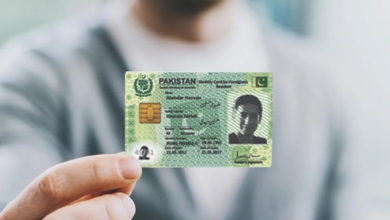5 Common Mistakes to Avoid When Requesting Military Records

Getting hold of military records is a big deal for veterans, their families, and historians. These records are key to unlocking a treasure trove of information about someone’s service in the armed forces. But, finding your way through the maze to get these records isn’t always easy. Mistakes can slow you down or block your path completely, whether you’re a veteran looking up your own history, a family member chasing down a relative’s military past, or a researcher digging into historical military details. This guide aims to shine a light on common slip-ups people make when asking for military records. We’ll share tips to avoid these errors, making your journey to uncover military histories smoother and more successful. Stick with us to learn how to navigate the process efficiently and get your hands on the records you need.
Table of Contents
Mistake #1: Providing Incomplete or Inaccurate Personal Information
One of the biggest hurdles in getting military records is not giving all the details needed or messing up the info you do provide. Imagine trying to find a needle in a haystack, but you’re not sure if you’re looking for a needle or a pin. That’s what it’s like for the agencies handling your request if you don’t provide complete and correct personal information.
Here’s what you absolutely must get right:
- The full legal name used during service, because John H. Doe and John Henry Doe could be seen as two different people.
- The service number or Social Security number, which is like a unique identifier for every service member.
- Important dates like when they joined and left the military, and their birth date.
- The branch they served in and whether they were active duty, reserve, etc.
Before you send off your request, double-check everything. Look at old letters, service records, or even ask family members to make sure you’ve got the facts straight. Getting it wrong can lead to delays, or worse, a flat-out denial because they can’t find the records you’re asking for. Taking the time to verify details can save you a lot of headaches later on.
Mistake #2: Failing to Provide Proper Identification and Authorization
A common mistake people make when requesting military records is not providing the right ID or permission. It’s like trying to get into a locked treasure chest without the key. You know the riches are there, but you can’t access them. Here’s what you need to remember:
- Identification is a Must: Whether you’re the veteran or a family member, you need to show who you are with a government-issued photo ID. This proves to the agency that you are who you say you are.
- Proving Your Relationship: If you’re asking for records on behalf of someone else, like a relative who served, you’ll need to prove your relationship to them. This could mean showing a birth certificate, marriage license, or other legal documents.
- Get the Right Authorization: Sometimes, you might need written permission to access someone else’s records. Make sure any authorization forms are filled out completely and, if necessary, notarized.
Skipping these steps can lead to your request being delayed or denied. It’s like being at the door but not being able to enter. So, gather all the needed documents before you start. This preparation can make the difference between getting the records smoothly or facing barriers.
Mistake #3: Submitting Requests to the Wrong Agency or Entity
Sending your request for military records to the wrong place is like mailing a letter to the wrong address; it just won’t reach its intended destination. The military records system is a complex network, with different agencies holding different pieces of the puzzle. Here’s how to avoid this mistake:
- Know the Right Agency: The National Archives and Records Administration (NARA) keeps most service records, but the National Personnel Records Center (NPRC) has the Official Military Personnel Files. If you’re after medical records or specific unit information, you might need to contact the Department of Veterans Affairs (VA) or the military branch directly.
- Understand What You’re Looking For: Different agencies handle different types of records. For example, if you need proof of military awards, you might need to reach out to the specific military branch’s records office. For general service records, NARA or NPRC would be your go-to.
- Double-Check Before Sending: Make sure you’re sending your request to the agency that actually has the records you need. A quick check on their website or a phone call can save you a lot of time.
Mailing your request to the wrong agency leads to delays and frustration. Taking a moment to ensure you’re reaching out to the correct place can streamline the whole process, getting you the information you need much faster.
Mistake #4: Failing to Follow Proper Procedures and Guidelines
Not following the set rules and guidelines when requesting military records is like trying to play a board game without knowing the rules—you won’t get very far. Each agency that holds military records has its own set of procedures for how requests should be made, and not sticking to these can throw a wrench in the works.
Here’s how to stay on track:
- Use the Right Tools: Many requests can be made through online portals, which guide you through the process. If you’re mailing your request, forms like SF-180 are often required. Make sure you’re using the latest version.
- Mind the Deadlines: Understand that processing takes time. Submit your request well in advance of when you actually need the records, especially if they’re for something time-sensitive like a benefits claim.
- Dot Your I’s and Cross Your T’s: Fill out forms completely and accurately. Missing information can stall your request. Also, include any required supporting documents to prove your relationship to the veteran or your right to access the records.
Skipping steps or ignoring guidelines can lead to delays or your request being returned. Following the established path laid out by the agencies ensures your quest for records moves forward as smoothly as possible.
Mistake #5: Failing to Persist and Follow Up on Delayed or Denied Requests
Giving up too soon on delayed or denied requests for military records is like stopping a race just before the finish line. Sometimes, hurdles in the process can slow things down or even halt them altogether. But, with a bit of persistence, you can often get past these obstacles.
Here’s what you should do:
- Understand Why: If your request hits a snag, find out the reason. It could be something fixable, like missing information or a misunderstanding about what you’re asking for.
- Keep the Communication Open: Regularly check in on the status of your request. Staying in contact with the agency can help keep your request on their radar and show your commitment to seeing it through.
- Know Your Rights: If your request is denied, don’t be afraid to ask about the appeals process. You might need to provide more information or clarify your initial request.
Requests for military records can take time and sometimes face setbacks. However, showing determination and following up can make all the difference. Remember, it’s about navigating the system with patience and perseverance, ensuring you eventually receive the records that are so important to you or your family’s history.
Conclusion
Navigating the process to obtain military records can indeed be tricky, but steering clear of common pitfalls makes the journey smoother and more fruitful. By providing complete and accurate information, ensuring proper identification, sending requests to the right agency, following specific procedures, and persisting through delays or denials, you’re setting yourself up for success. Remember, these records are more than just papers; they’re keys to unlocking history, benefits, and honors deserved. Armed with diligence and attention to detail, you can overcome the challenges and access the valuable insights that military records hold.




